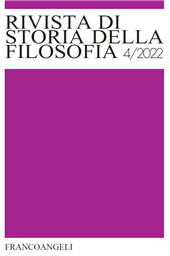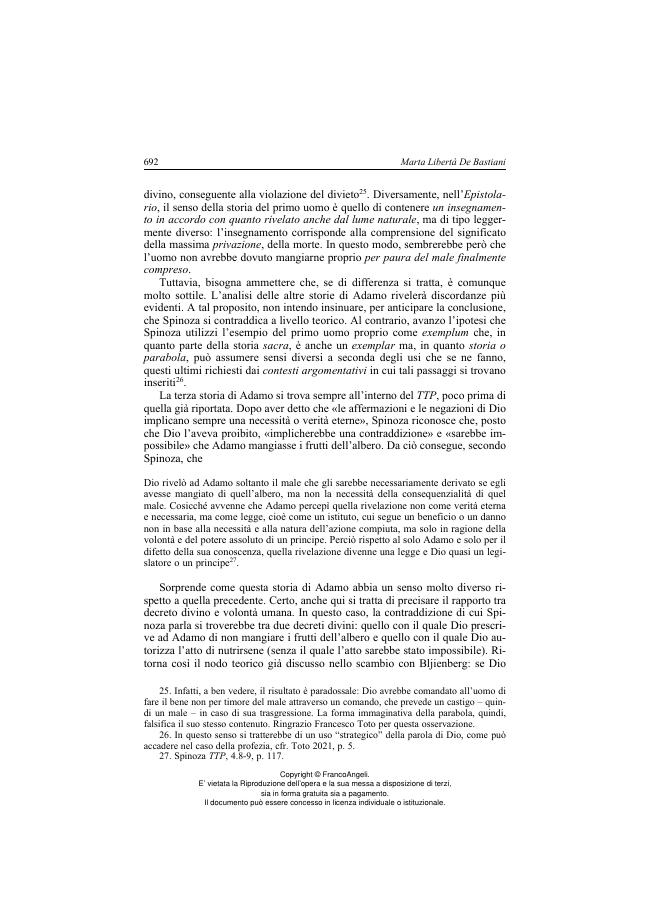Spinoza e le sei storie di Adamo : teoria della narrazione e polisemia dei testi
684-699 p.
For six times in his Works Spinoza quotes what we may call the Story of Adam, namely the biblical passage in Genesis where the creation of the first man and woman, their original guilt and their punishment is told. Surprisingly, each time the sense of the story changes. Besides being considered sometimes as a parable and at others as a simple narration, its sense seems to depend largely on what Spinoza intends to demonstrate: that is to say the meaning of each Story of Adam is subject to the argumentative context. Hence, the six stories of Adam show that Spinoza conceives of this parable (or story) like every other story, namely as something whose inÂÂ terpretation may vary depending on the communicative intent.
Consequently, an analysis of how Spinoza treats the Story of Adam varyingly gives us many clues to underÂÂ standing his view on narrations and parables but also on every written text or, in general, every kind of secondhand information (experientia ex auditu or ex signis): they have a polysemic nature, and may be used in different situations, adapting their meaning to what one intends to argue. [Publisher's text].
-
Articoli dello stesso fascicolo (disponibili singolarmente)
-
Informazioni
Codice DOI: 10.3280/SF2022-004004
ISSN: 1972-5558
PAROLE CHIAVE
- Spinoza, Adam, story, TheologicalÂÂPolitical Treatise, Ethics, Political Treatise



